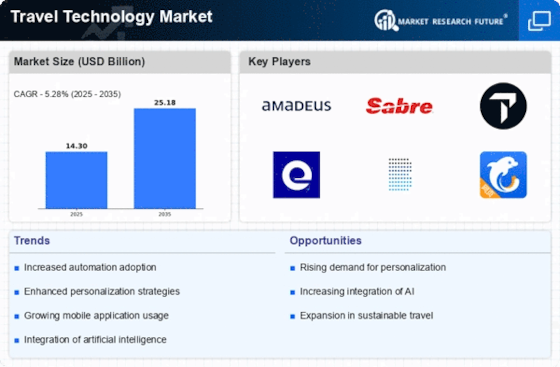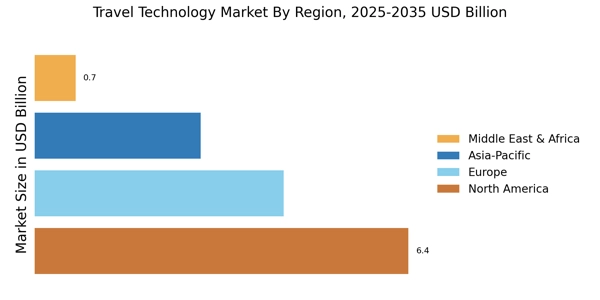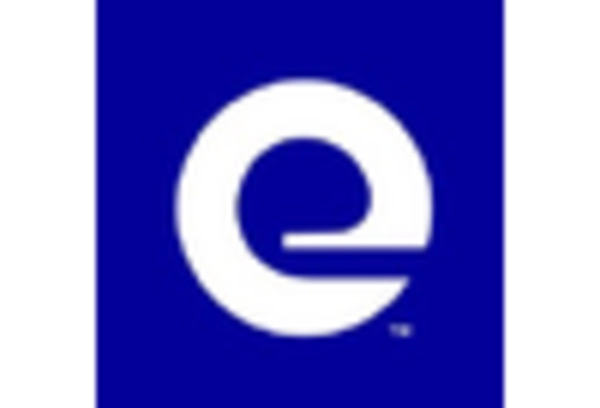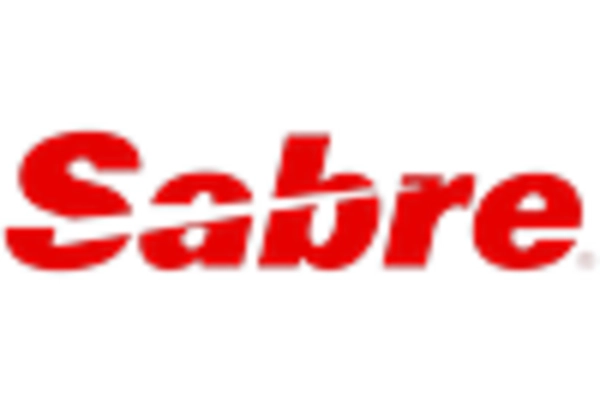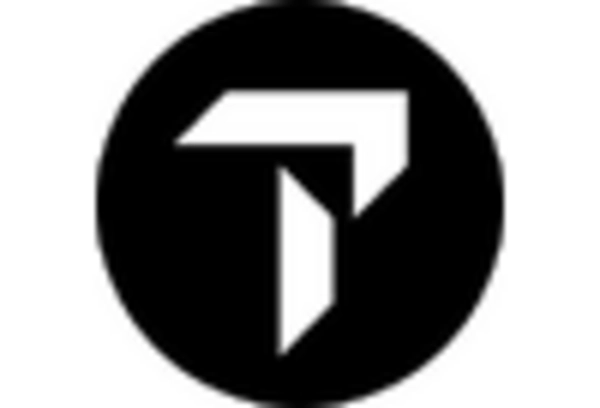Rise of Mobile Technology
The proliferation of mobile technology is a key driver in the Travel Technology Market. With the increasing use of smartphones and tablets, travelers are now able to access travel services at their fingertips. According to recent data, over 70% of travelers utilize mobile devices for booking and managing their travel plans. This trend indicates a shift towards mobile-first strategies among travel companies, which are investing heavily in mobile applications and responsive websites. The convenience offered by mobile technology enhances user experience, allowing for real-time updates and personalized travel recommendations. As mobile technology continues to evolve, it is likely to further transform the Travel Technology Market, making it essential for companies to adapt to these changes to remain competitive.
Adoption of Advanced Data Analytics
The adoption of advanced data analytics is a significant driver in the Travel Technology Market. Companies are increasingly leveraging data to gain insights into consumer behavior and preferences. Recent statistics indicate that organizations utilizing data analytics can improve their marketing effectiveness by up to 30%. This capability allows travel companies to tailor their offerings and enhance customer engagement. Furthermore, data analytics aids in optimizing pricing strategies and inventory management, which are crucial for profitability. As the importance of data-driven decision-making continues to grow, the Travel Technology Market is expected to see a surge in investments in analytics tools and technologies.
Focus on Sustainable Travel Solutions
The focus on sustainable travel solutions is becoming increasingly prominent in the Travel Technology Market. As awareness of environmental issues grows, travelers are seeking eco-friendly options and responsible travel practices. Data indicates that nearly 50% of travelers are willing to pay more for sustainable travel experiences. This shift is prompting travel companies to innovate and offer solutions that minimize environmental impact, such as carbon offset programs and sustainable accommodation options. The emphasis on sustainability not only meets consumer demand but also enhances brand reputation. As the Travel Technology Market evolves, the integration of sustainable practices is likely to become a standard expectation among travelers.
Emergence of Virtual and Augmented Reality
The emergence of virtual and augmented reality technologies is reshaping the Travel Technology Market. These immersive technologies provide travelers with unique experiences, allowing them to explore destinations before making travel decisions. For instance, virtual reality tours can increase customer engagement and conversion rates, as they offer a preview of what to expect. Recent studies show that 40% of travelers are more likely to book a trip after experiencing a virtual tour. As these technologies become more accessible and affordable, their integration into travel marketing strategies is likely to expand, offering new avenues for customer interaction and engagement in the Travel Technology Market.
Growing Demand for Seamless Travel Experiences
The demand for seamless travel experiences is increasingly shaping the Travel Technology Market. Travelers today expect a frictionless journey from booking to arrival, which has led to the integration of various technologies. Data suggests that 60% of travelers prioritize ease of use when selecting travel services. This has prompted companies to adopt solutions such as integrated booking platforms and automated check-in processes. The emphasis on seamless experiences not only enhances customer satisfaction but also drives operational efficiency for travel providers. As the industry evolves, the focus on creating smooth transitions between different stages of travel is likely to remain a central theme in the Travel Technology Market.


